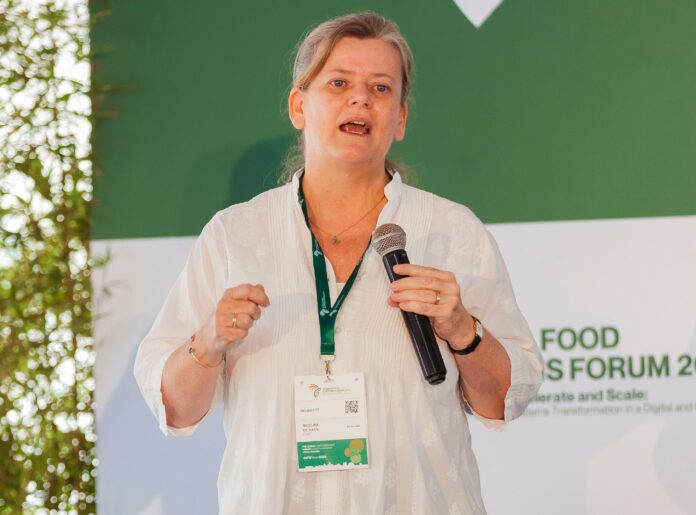AGRA and partners has today launched the African Youth Common Position on Food Systems, Policy and Climate Change and call to action 2024 affirming that African youth hold the greatest potential to grow the continent’s food systems through innovation and vibrant labor.
“The 2024 youth common position paper highlights the current challenges and opportunities faced by youth in agriculture from several African countries. It also provides strategic recommendations to support their engagement and development,” remarked Dr. Jeremiah Rogito, Specialist Food Systems and Land Use at AGRA
The report is based on a survey and a series of country and regional level convenings and engagements conducted in Kenya, Tanzania, Uganda, Rwanda, Ethiopia, Malawi, Mozambique, Ghana, Nigeria, Togo, Mali, Cote d’Ivoire, Burkina Faso, Togo, and Zambia, on African Youth with a focus on understanding how to strengthen youth entrepreneurship ecosystems within the agricultural sector in a changing climate era.
Dr Kindie Fantaye Head, Climate Adaptation and Resilience at AGRA, said, “This is the first step, next, we need to take action. AGRA will take this common voice to policy makers at COP29 in November and the World Food Forum. We need the youth to participate actively in the coming years as collective action is important.”
Dr Nicoline de Haan, Director, CGIAR Gender Impact Platform in her remarks noted that “We need more research on power structures in food systems and how we can get youth engaged within those power structures so that the power isn’t as inequitable as it is at the moment. We need to ensure there are real opportunities, not just a few people in an incubator somewhere, but that there are real opportunities across the system.”
Youth struggle with limited access to essential resources, including financial resources, agricultural inputs, training and modern technology necessary for starting and scaling agricultural ventures. This constraint hampers their ability to adopt modern farming practices and improve productivity.
Access to finance is particularly challenging due to the heightened perception of risk for this category by financial institutions.Infrastructure deficiencies, as evidenced by the inadequate road structure, storage facilities, and market access, hampers the efficiency of agricultural activities. It also leads to significant post-harvest losses as most young farmers lack insurance to cover these losses.
Dr Nana Yaa Amoah, Director – Gender, Youth and Inclusiveness, AGRA, remarked, “We must be deliberate in ensuring that we set up youth advisory boards to not only get their voices heard but give them access to some of the high-level sessions where the important policy discussions are being had.”
The report provides several resolutions and recommendations among them being enhancing access to resources and funding for young farmers including the establishment of youth-focused microcredit schemes, investment funds, and simplified land acquisition and access processes. The report also recommends the creation and implementation of policies that ensure equal opportunities for all youth, including marginalized groups such as young women and youth with disabilities.









